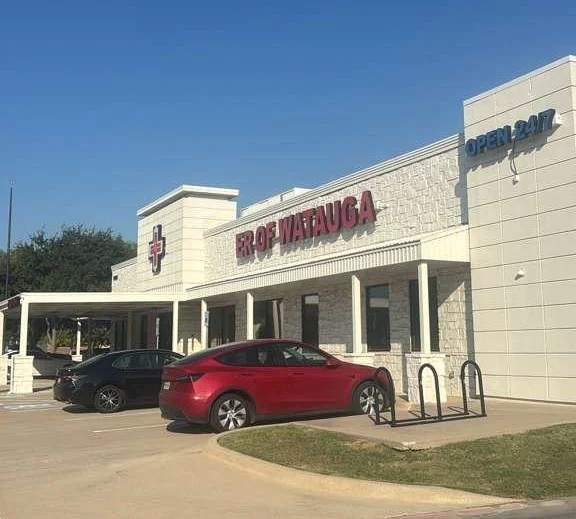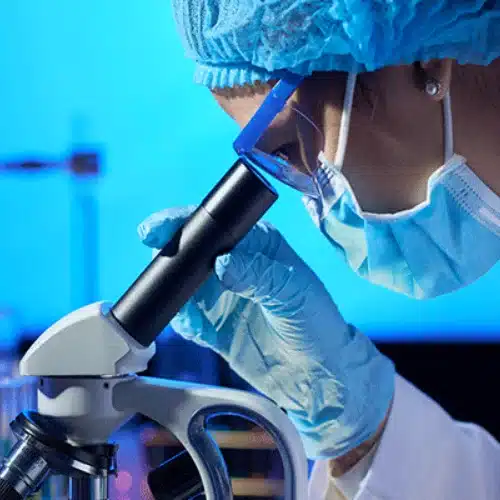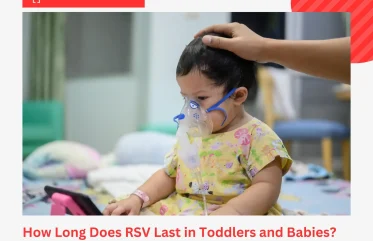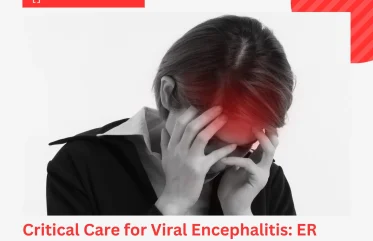Gabrielle Blakely
10 hours ago
Our services include Rapid & PCR COVID-19 Test and Treatment Entails Monoclonal Antibody Treatment for Prophylaxis and COVID-19.


At ER of Watauga, we offer a comprehensive range of services. We have a team of highly qualified and experienced physicians, specialists, and fully trained lab technicians at our well-equipped clinical laboratory. Each one of our faculty members is dedicated to providing prompt clinical aid and ER services around the clock. Here at our Emergency Care, we offer treatments for various diseases. Our professionals are always available to provide professional and timely treatments at the nearest ER Clinic in Watauga TX. We strive to provide the best medical services and treatment solutions to our patients by applying the most effective and efficient diagnostic practices. Our specialists and recommendations are always with you in your hard times. No matter it’s for clinical treatment or early physical therapy care. Find the “nearest ER to my location” or visit our nearest emergency room servicing 24/7. In case of encountering an injury, rush to the nearest ER Hospital or find the closest urgent care Watauga TX.








We are servicing 24/7 at our State of the Art Emergency Care Clinic. Our professionals are operating under standard practices to handle patients
During the first few years of life until puberty, a child may face several health complications. A personalized pediatric care specialist can treat a child’s disease as effectively as possible. Our pediatric emergency care units are open 24/7. At our freestanding Watauga Medical Center emergency room, we provide several treatment options at our state-of-the-art facility. Our emergency care rooms are well-equipped and staffed with a well-trained team of expert professionals and pediatricians dedicated to providing prompt clinical care at all times. Visit our local emergency room or ER hospital for instant and effective treatment.




We are the one-stop shop for comprehensive healthcare services in Watauga as we offer personalized healthcare solutions. Our 24-hour urgent care in Watauga ensures that you receive immediate medical treatment within your schedule’s constraints. Our certified staff at our Watauga hospital is trained and ready to accommodate your special medical problems with high proficiency and care. Since convenience is the most important factor to consider, our walk-in clinic in Watauga offers the greatest flexibility and availability hours to accommodate your busy days.
Our medical center Watauga has undergone significant transformations in recent years, with technological advancements, rising healthcare costs, and changing demographics driving innovation and change. We aim to give you the best care in Watauga. Contact us now to book an appointment or to get further information.
10 hours ago
The staff is so kind and helpful!
23 hours ago
Miss Karen the receptionist/nurse was absolutely wonderful and kind to us! The nurse and the doctor were extremely attentive and caring towards my 7 year old son who had an ear injury. Thank you guys so much!!!
2 days ago
The doctor and every of their staff was nice, they showed empathy and care and at the same time was very professional. I would recommend this place any day any time.
7 days ago
Great and fast service!!
1 week ago
Amazing service and people
1 week ago
Staff is wonderful , Dr Li is the best. Best ER I’ve ever been too, highly recommend
1 week ago
Fast, explanatory and such a great staff.
1 week ago
Employees very helpful and efficient
1 week ago
In and out very quickly for some stitches after hours. Everyone was very nice and professional. Went above and beyond to make sure everything was clean and sutured up, thank you 😊
1 week ago
The waiting time was exceptional. The nurse I had, Deloris, was the sweetest and made sure to keep me informed. Dr. Elsakka was quick and thorough.
2 weeks ago
Speedy visit. Not long of a wait. Good doctor.
2 weeks ago
Very professional and super friendly
2 weeks ago
They did an awesome job great experience all around.
2 weeks ago
great staff & very helpful!!
3 weeks ago
Extremely professional, and helpful respectful staff.
3 weeks ago
Checked in and receptionist was so nice and got me checked in quickly. Once in my room I was warmly greeted by my nurse India and then Dr. Li. They treated me with kindness and compassion. They were so efficient and thorough. They kept me to observe me and there was a shift change and the service of Dr. Elsakka and nurse Joe, was awesome. They made sure that I was ok before discharging me. They even did a follow up call once I was home and the Dr wanted to check in on me. I loved their service. They were extremely knowledgeable and so helpful. I want to thank everyone with the exceptional care they provided to me.
3 weeks ago
Excellent service!!
3 weeks ago
The team was great they took great care of me
3 weeks ago
Great service and excellent staff. Went out of their way to make sure I was taken care of.
3 weeks ago
Amazing service !
4 weeks ago
ER of Watauga was highly recommended by my nurse friend, so my family and I go out of our way (and pass at least 3 other stand alone ERs!) if we need ER care. Just as other reviewers have stated, I was seen immediately, the medical staff at this location are top notch , the facilities are clean and up to date (imaging, CT, , x ray, etc.) The quality that sets this ER apart from others, though, is the way I was treated as a patient. I had to spend a night there, and they made sure I was comfortable, fed, and cared for the entire time. I have never experienced that level of compassionate care from any other ER (stand alone/ hospital) before. Unfortunately, I've been to many ERs over the years not only for myself, but to also take family members. Also, they are true to their word when they state no surprise billing. If you or a family member needs to visit an ER, THIS is the place.
4 weeks ago
The staff was promp to get me in and the doctor came in quick to give me diagnosis and give me a treatment plan.
4 weeks ago
Front desk Was supportive ,helpful, and sweet Great staff !! Doctor is Great I always come to Watauga ER
4 weeks ago
ER of Watauga was exceptional. The staff was phenomenal, nurses, doctors, and CT tech. Dr. Li worked past her shift to make sure I got connected to outside care I needed and called to check up on me. I would recommend going here, it was clean, comforting, and they helped me get the care I needed!
1 month ago
Friendly and compassionate
1 month ago
Great service, short wait time. Polite and professional staff. I highly recommend.
1 month ago
Our go to when we aren’t able to see our pediatrician! Great staff.
1 month ago
The staff was so nice and very helpful and the doctor reassured me that I was okay. And if I didn’t feel safe to be at home I was more then welcome to stay to get some rest after I fell and hit my head on the concrete. They best visit I’ve ever had
1 month ago
Dr's nurses and staff here are all so amazing. Mahab(sp) is wonderful. Appreciate everything they do for their patients
1 month ago
The staff was very professional. They got us seen right away. They took care of my pain and explained everything so well. I would highly recommend this ER
1 month ago
Everyone was super friendly and made me comfortable during my visit! 🙂
1 month ago
Highly, HIGHLY recommend ER of Watagua. They’re incredibly professional, kind and understanding and will answer any questions you have. Such an awesome experience for not feeling great lol
1 month ago
Very professional. Very caring and compassionate. The visit was personable
1 month ago
I'm so grateful for the whole staff. Especially Mary and Dr.Lee who's bedside manner was above and beyond. They made us feel heard and cared for. Made sure my partner was in better shape before we left. If you're in the area and need an urgent care I highly recommend coming here.
1 month ago
This place took care of me. The staff helped me so much. 10/10 would have an emergency here again
1 month ago
We have now been here 4 times (2 for me and 2 for my partner) and we have had a very positive experience all 4 times! Everyone there has been nice, caring, and helpful from beginning to end! They took y concerns seriously and essentially saved me from going into sepsis shock by treating me proactively and urgently. They also helped me take care of my 2 month old baby while we stayed there overnight until I was transferred to a hospital. They have gotten us in and out of there so fast on our other visits and are attentive and have listened to our concerns! Very impressed!
1 month ago
In and out super fast. We had a little injury, but were fixed up in 30 mins. Good as new. Excellent bedside manner.
2 months ago
It was the best they were really nice and did everything they could to keep me comfortable Regina helped me get through a lot thank you guys so much.
2 months ago
They did really well with my 2 year old daughter. Who absolutely freaks out around doctors and nurses but she was calmer than usual when they were treating her
2 months ago
Fast, efficient, great informative staff, and left with answers unlike other places in the area! Thank you so much!
2 months ago
Great place to come
2 months ago
Dr. Li was great. She was very thorough and super sweet.
2 months ago
One of the most professional and helpful emergency rooms I have ever visited. Was clean, fast and efficient. I explained why I was there and within 10 minutes was taken to a room and had the care I needed at the time. Friendly and helpful staff. Very efficient with timing and patient communication. Thank y’all for all the help you provided!
2 months ago
Super friendly from start to end! Treated my 19 month old daughter and I with respect and lots of care. My daughter was the patient and even though she didn't like being swabbed or checked for her vitals, they really seemed to care for her and be as gentle as possible, while still accomplishing what was needed. I will be taking my whole family (including myself) to this place anytime we get sick or need medical attention!
2 months ago
Everyone here are amazing. Will definitely be recommending and coming back. Were quick and efficient.
2 months ago
This place is so peaceful. Id rather go here than anywhere else.
2 months ago
All of the staff were very friendly and helpful!
2 months ago
Nice facility. Had been here before and husband wasn’t feeling well so decided to come someplace we trusted. Would definitely come back if needed.
2 months ago
Great service. Not like a regular ER I come here for all emergency when I can’t wait for a primary visit . My experience is always great they care about you and make sure you are taken care of without a rush but still efficient.
2 months ago
Awesome staff
2 months ago
This place provided the best emergency care I’ve ever received. I was in excruciating pain from a dental abscess and was hesitant to go in due to past negative experiences at other emergency rooms. From the moment I arrived, the staff and Dr. Brunett were absolutely amazing. They were compassionate, patient, and truly attentive. The level of care I received exceeded my expectations. I will definitely return here for any future emergency needs.
2 months ago
This place is very professional, extremely friendly and welcoming! Best ER experience that I’ve ever had! Thank you so much Massad for being such a kind person and very friendly
2 months ago
Unfortunately, I’ve had to come here a couple of times for myself, and both of my kids. All of the staff I’ve come in contact with were friendly. The Doctors are great, and the nurses do their best to keep you comfortable while you wait for results, etc. I haven’t had to wait in the waiting room, so that’s amazing 👏🏼. So grateful for ER of Watauga!
2 months ago
everyone has been super helpful and kind. unfortunate to be in the ER but grateful to have had a caring staff
2 months ago
They took really good care of me and listened to everything I said!!
2 months ago
Wonderful staff from the front desk to provider & the nurse in the back! Great bed side manner & Quality care!!! 5 out of 5 stars!!!
2 months ago
The staff here were all very kind and helpful!
2 months ago
Great Drs and nurses! In and out and they truly care about getting you the right treatment. Thank you team.
2 months ago
Absolutely wonderful experience friendly and very informative
2 months ago
I received exceptional customer service, characterized by a welcoming and professional staff. The entire process was efficient, allowing me to be in and out quickly. I sincerely appreciate their level of service and wish they offered a family practice to serve as my primary care provider.
2 months ago
Very nice staff
2 months ago
I love the way David Latham take time to explain everything communication perfect 👌 I really appreciate my family and I we love ❤️ u so much more blessings
2 months ago
The nurse and the doctor are helpful and they care deeply about their patients. Waiting time is reasonable and they don’t take too much time. The assistance is available all the time. And they don’t worry or stress you about payment.great place. Highly recommended
2 months ago
Fast & efficient and friendly nursing staff, doctors & receptionist!
2 months ago
Awesome and helpful staff that were quick at attending to my father's needs
3 months ago
Great service, I was in and out quickly and they got me all fixed up!
3 months ago
Staff was helpful and friendly
3 months ago
Everyone here are amazing. Will definitely be recommending and coming back
3 months ago
Quick and fast, super friendly nurses.
3 months ago
Amazing people fast and nice helps you a the way step by step
3 months ago
This location is fast and friendly. I will always us this urgent care for our families healthcare needs!
3 months ago
Great staff hit me taken care of quickly and very professionally
3 months ago
Me and my daughter came in for a cold and we were treated very nice. The staff was very friendly and they made sure that everything was well explained and they took good care of us overall
3 months ago
It was good they got me Gatorade
3 months ago
My name is Jamarian and I will love to share my experience of being checked in to er of Watauga 24 hours emergency. The concern love and support the staff gave me is tremendous thanks! Iam 40yrs old & I’ve never been treated with much care and kindness. Thank you guys so much. I feel much better today. God bless you all.
3 months ago
Went to the ER since I seen good reviews, walked in was greeted warmly, taken to the back immediately, first nurse Mr. Weldon that treated me was so professional and very nice, second nurse Mr. John was also very professional and very nice, Dr. Elsakka was absolutely wonderful, very patient and knowledgeable and he made sure that I was ok in every way, gave me advice and helped me to understand what was going on with my health, I have never had any emergency room Dr treat me the way he did, thank you so much for my exceptional care. And also very clean and nice rooms.
3 months ago
10 out of 10. Service this ER provides is EXCELLENT. Doctor, nurse and staff are very attentive. Thank you!!
3 months ago
Very friendly staff. Made my visit very quick and enjoyable
3 months ago
Decided to stay close to home. Wanted to be in and out rather than be admitted to a hospital. There was no wait. Was put in a room immediately. The staff was wonderful making sure i was as comfortable as i was going to get considering the circumstances.
3 months ago
Super friendly staff very accommodating
3 months ago
Caring staff. The hospital was clean and well-maintained. 🙂
3 months ago
Excellent service every time!
3 months ago
Staff was caring and communicative when I had to take my toddler in. I would recommend them for that plus their close proximity, & they get you in quickly.
3 months ago
Great job to the nurses and doctor who take care of over the night, making sure I’m having fluids and providing food from DoorDash is also great
3 months ago
Great staff and service.
3 months ago
The most amazing people. Everyone was exceptionally nice, friendly and very caring. Highly recommend this location!!!
3 months ago
Travis, Dr. Latham and the staff here were great. Took care of me quick and effectively. I’m grateful.this place is fantastic
3 months ago
Quick and easy check in process. Everyone was really kind!
3 months ago
There an amazing!! Love them
3 months ago
Everyone was warm and welcoming with helping my mother. We were seen very quickly.
3 months ago
Pulled off the road on my way home from work because I was in severe pain. I got right in and was genuinely cared for. I appreciate the great care by the whole team.
3 months ago
Such a great experience coming to this ER! I was admitted quickly in the middle of the day. Every person that I spoke to was incredibly helpful, kind, and they listened to me without any interruptions. They were also very accommodating. I felt seen. I felt heard. And the treatment was swift and effective. I felt like I knew what was going on every step of the way. They were also very kind to my mom, who had a lot of concerns. As a woman, I never felt dismissed. Every area felt clean and safe. If I ever need to come back to an ER, THIS is the place I will go!
3 months ago
This place can in absolutely clutch! Close to the house, convenient and very short wait times. The staff were all friendly and fun! Thank you for such great service!
3 months ago
Amazing and attentive, was able to get in and get situated. Amazing staff, will be back
3 months ago
Wonderful
3 months ago
I love this place. I highly recommend this place to anybody.
3 months ago
The most amazing experience I have ever had!… thank you guys so much!!!.. I came in feeling like I was dying and everyone was making me feel like I was exaggerating but once I got here they took me in kept for 3 days until I actually got better!..
4 months ago
Everyone was so nice and quick! Not a fun place to visit, but it was stress free and quick
4 months ago
This has to be the best ER I’ve ever been to. The staff is very personable and the doctor is patient and thorough. We drive out of our way to come here if at all possible.
4 months ago
Everyone has been so kind and nice while taking care of us!
The emergency room (ER), also known as the emergency department (ED), is a specialized medical facility in a hospital where patients with acute, severe, and potentially life-threatening conditions receive immediate medical care. It is staffed 24/7 with healthcare professionals trained to handle a wide range of medical emergencies.
Signs that you may need to go to the emergency room include:
High blood pressure alone is not typically considered an emergency. However, you should go to the emergency room if you experience symptoms such as severe headache, chest pain, shortness of breath, blurred vision, confusion, or signs of organ damage, as these could be related to dangerously high blood pressure.
One of the most common reasons for ER visits is related to injuries, including falls, accidents, and trauma. Respiratory problems, chest pain, abdominal pain, and fever are also frequent reasons for people to seek emergency care.
You should not go to the emergency room for non-urgent or routine medical issues that can be addressed by a primary care physician or urgent care clinic. Examples include minor colds, minor cuts, mild fevers, prescription refills, or non-severe allergic reactions. Using the ER for non-emergencies can result in longer wait times for those with true emergencies and higher healthcare costs.



If you’re looking for quick reliable emergency medical care, look no further than ER of Watauga. We prioritize your urgent healthcare requirements and provide 24-hour help. Our facility is equipped with cutting-edge technology, and our dedicated staff is committed to providing dependable and economical care. Renowned for our steadfast dependability, we constantly aim to uphold our reputation by exceeding your expectations with outstanding healthcare services
Need help?